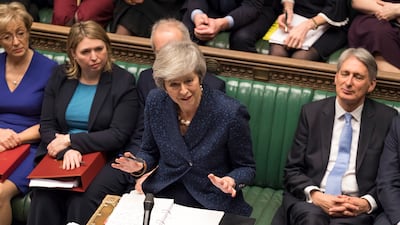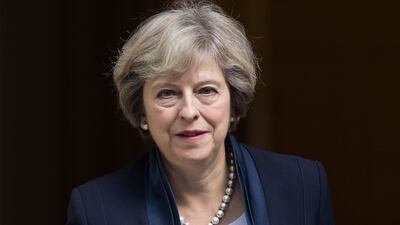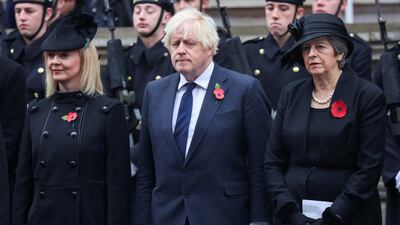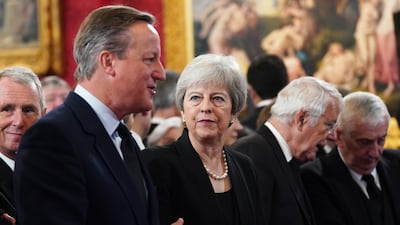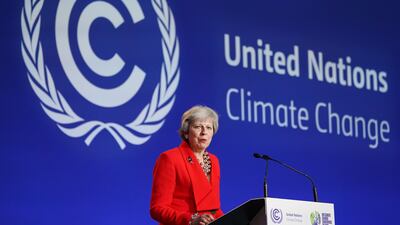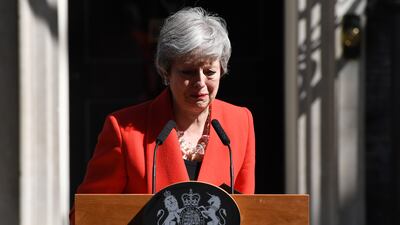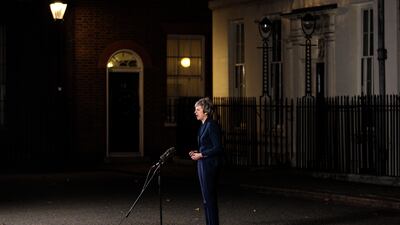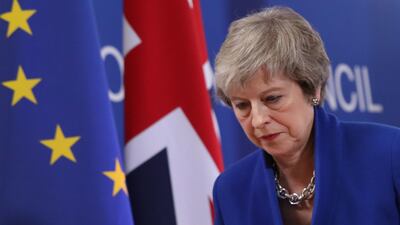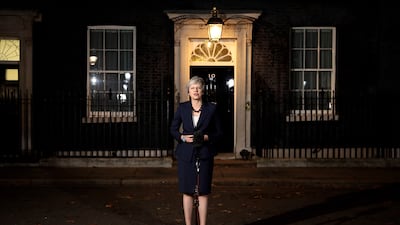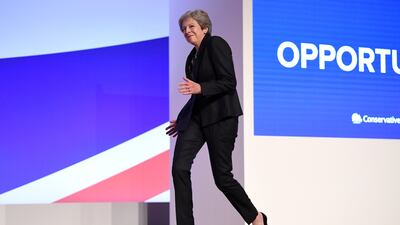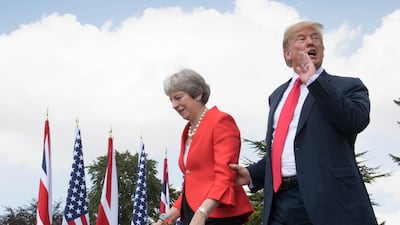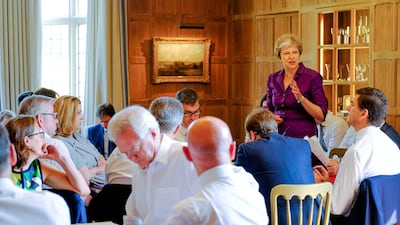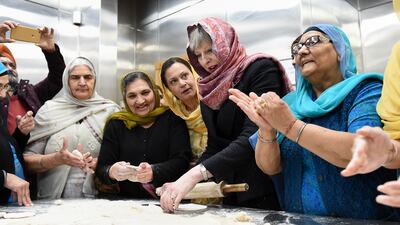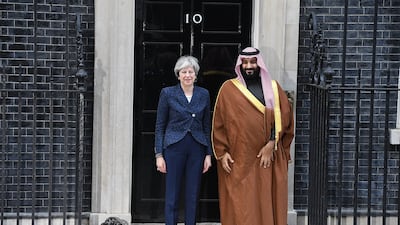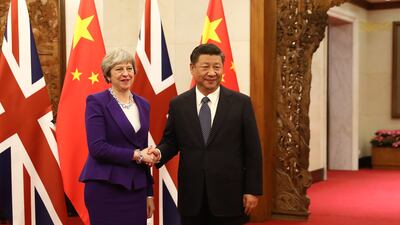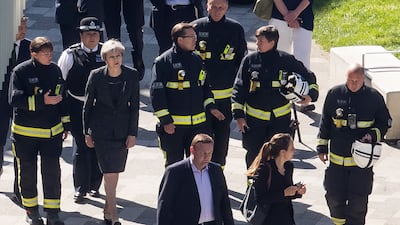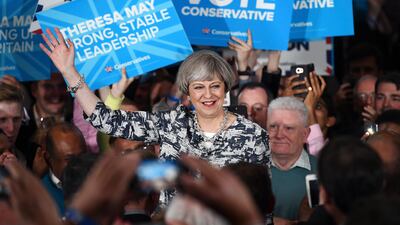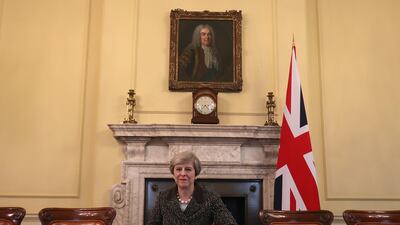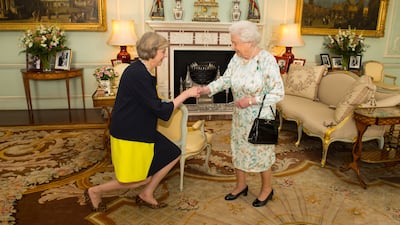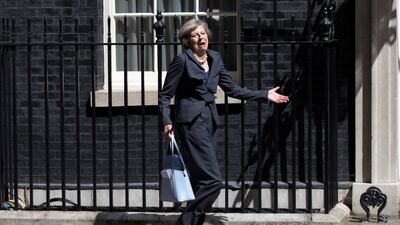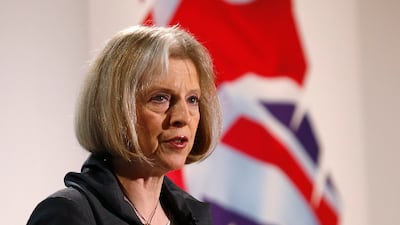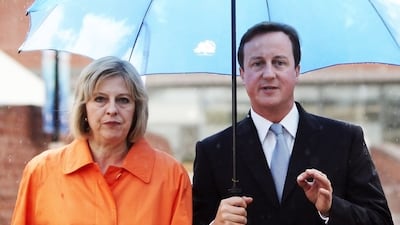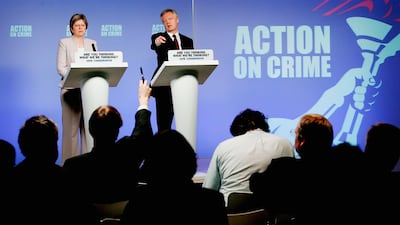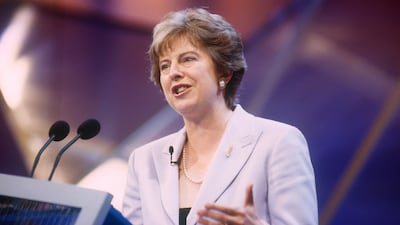Theresa May has announced she will step down as an MP at the next general election, bringing a 27-year career in the UK Parliament to an end.
A senior Conservative who served as a defence minister under Mrs May, 67, told The National she had made a “massive contribution” to holding the party together in the post-Brexit years.
Tobias Ellwood also praised Britain’s second ever female prime minister for her stance on “challenging sexual exploitation across the world”.
Mrs May, who last week attended the Arab Women’s Summit in London, is the latest Conservative MP to step down joining 63 others who will resign their seats at the election later this year, including five who will not contest their current constituencies but have yet to reveal their intentions.
She has been a consistent campaigner on modern slavery and human trafficking, and launched her Global Commission in October, backed by the UK and Bahrain governments.
As prime minister, she was notable for leading a mass expulsion of Russian spies across Europe after the Novichok poisoning in Salisbury – a botched assassination attempt on double agent Sergei Skripal and his wife Yulia in 2018 – as well as giving a moving tribute in the House of Commons following the death of Queen Elizabeth II.
"Since stepping down as prime minister, I have enjoyed being a backbencher again and having more time to work for my constituents and champion causes close to my heart, including most recently launching a Global Commission on Modern Slavery and Human Trafficking," she said in a statement to her local newspaper, the Maidenhead Advertiser.
"I have realised that, looking ahead, I would no longer be able to do my job as an MP in the way I believe is right and my constituents deserve."
Mrs May inherited the highly toxic Brexit issue when she became prime minister in 2016 following David Cameron’s resignation.
For three years she attempted to drive legislation through Parliament in the divorce from the European Union, while trying to make it as economically beneficial to Britain as possible.
Yet much of her efforts were scuppered by arch-Brexiteers who were led by disgraced former prime minister Boris Johnson in what was one of the most politically challenging periods in Westminster history.
“She navigated the party through the most difficult of times when there was collective indecision on how to handle the Brexit result,” said Mr Ellwood, who voted "remain" in the Brexit referendum.
“There are many people still in denial that she had a model of Brexit that was economically sound and where we've eventually landed."
But opposition to her proposed Brexit deal fuelled a no-confidence vote, diminishing her authority.
Facing a string of party rebellions and a parliamentary stalemate that tested the nation's constitution to its limits, she resigned as prime minister in 2019, describing the role as having been the "honour of my life".
Theresa May through the years - in pictures
She was first elected MP for Maidenhead in 1997 and served as home secretary under David Cameron from 2010 to 2016 before succeeding him as prime minister.
She lost her majority in a snap election in 2017 but remained at No 10 thanks to a deal with the DUP in the resulting hung parliament.
Mr Ellwood argued that Mrs May resembled former US president Jimmy Carter as a “reasoned voice of criticism to our own party”, ensuring that the Conservative ideology “didn't drift away” to the right wing.
“She was also a leading voice in the very divisive period between the end of Boris Johnson and Liz Truss era, willing to be a big anchor for what Conservatism should be about, and I think she will be hugely missed on that front.”
She did not “sycophantically support” everything the government said but was a key influence in ensuring the party remained united behind Prime Minister Rishi Sunak despite the current “tribalism”.
Mr Ellwood said she had been a great supporter of women’s rights and mental health services.
Almost 100 MPs have now announced they will not contest their seats at the next election, including 64 current or former Conservatives, the most Tories to leave Parliament since Mrs May entered the Commons in 1997.
However, Mrs May is the most senior member of the Conservative Party to announce they will not seek re-election.
Following her announcement, Mrs May continued with her constituency duties, visiting a primary school on Friday where pupils were taking part in a scheme to encourage girls to play football on International Women’s Day.
The Prime Minister paid tribute to Mrs May, describing her as “a relentless campaigner” and “a fiercely loyal MP to the people of Maidenhead” who “defines what it means to be a public servant”.
